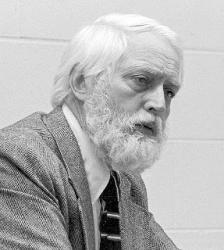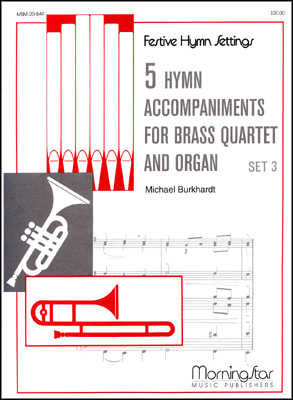- |
User Links
Give Thanks to God for All His Goodness

Give thanks to God for all his goodness
Versifier: Stanley M. Wiersma (1982)Tune: RENDEZ À DIEU
Published in 3 hymnals
Printable scores: PDF, MusicXMLAudio files: MIDI, Recording
Versifier: Stanley M. Wiersma
 Pseudonym: Sietze Buning
**********
Stanley Marvin Wiersma (b. Orange City, IA, 1930; d. Amsterdam, the Netherlands, 1986) was a poet and professor of English at Calvin College, Grand Rapids, Michigan, from 1959 until his sudden death in 1986. He attended Calvin as an undergraduate and received a Ph.D. from the University of Wisconsin in 1959. His love for the Genevan psalms is reflected in the two books of poetry for which he is most widely known: Purpaleanie and Other Permutations (1978) and Style and Class (1982), both written under the pseudonym Sietze Buning. He also wrote More Than the Ear Discovers: God in the Plays of Christopher Fry and translated many Dutch poems and hymn texts into English, including the children's hymns publ… Go to person page >
Pseudonym: Sietze Buning
**********
Stanley Marvin Wiersma (b. Orange City, IA, 1930; d. Amsterdam, the Netherlands, 1986) was a poet and professor of English at Calvin College, Grand Rapids, Michigan, from 1959 until his sudden death in 1986. He attended Calvin as an undergraduate and received a Ph.D. from the University of Wisconsin in 1959. His love for the Genevan psalms is reflected in the two books of poetry for which he is most widely known: Purpaleanie and Other Permutations (1978) and Style and Class (1982), both written under the pseudonym Sietze Buning. He also wrote More Than the Ear Discovers: God in the Plays of Christopher Fry and translated many Dutch poems and hymn texts into English, including the children's hymns publ… Go to person page >Text Information
| First Line: | Give thanks to God for all his goodness |
| Title: | Give Thanks to God for All His Goodness |
| Versifier: | Stanley M. Wiersma (1982) |
| Meter: | 9.8.9.8 D |
| Language: | English |
| Copyright: | Text © 1987, CRC Publications |
- Year A, Lent, Palm Sunday
Psalm 118 Metrical (LUYH)
Notes
Praising God for delivering the people when they were attacked by many nations and for making “the stone the builders rejected” the foremost cornerstone.
Scripture References:
st. 1 = vv. 1-4
st. 2 = vv. 5-14
st. 3 = vv. 15-21
st. 4 = vv. 22-25
st. 5 = vv. 26-29
The last of eight "hallelujah" psalms (111-118), 118 is a hymn of thanksgiving for deliverance from enemies. It presupposes a triumphal procession into the city and the temple of God. Psalm 118 praises God for unfailing love (st. 1) and for deliverance from many enemies (st. 2). In praise to God for bringing victory, the king leads a triumphal entry into God's presence (st. 3); the people celebrate "the day" in which God has set up his corner¬stone–the stone the builders had rejected (st. 4). The people praise and joyfully salute the anointed one, "who comes triumphant in God's name." A final call to praise and thank the LORD for unfailing love echoes the psalm's opening statement (st. 5).
Psalm 118 closes the "Egyptian Hallel" used in Jewish liturgies for the annual religious festivals prescribed in the Torah. At Passover, Psalms 113 and 114 were sung before the meal; 115 through 118 were sung after the meal. As the last song in that liturgy, 118 may have been the hymn sung by Jesus and his disciples at the end of the Last Supper (Matt. 26:30). Jesus applied verse 22 ("the stone the builders rejected") to himself in Matthew 21:42 and Mark 12:10 (see also Acts 4:11).
Stanley Wiersma (PHH 25) versified this psalm in 1982 for the Psalter Hymnal; he took the refrain from verses 1 through 4 and made it the final line of each stanza. Other settings of Psalm 118 are at 179 and 241.
Liturgical Use:
Times of thanksgiving; Palm Sunday and Easter processionals; many other occasions in Christian worship.
--Psalter Hymnal Handbook
Tune
RENDEZ À DIEUGENEVAN 98/118 is the one tune in the Psalter Hymnal used for two psalms. It was first published in the 1551 Genevan Psalter as a setting for Psalm 118; in the 1562 edition it was also set to Psalm 98 (hence both numbers in the tune name). The tune is also often named RENDEZ A DIEV, the French incip…
Timeline
Arrangements
Media
- Audio recording from Lift Up Your Hearts: psalms, hymns, and spiritual songs #196
- Audio recording from Lift Up Your Hearts: psalms, hymns, and spiritual songs #196
- Audio recording from Lift Up Your Hearts: psalms, hymns, and spiritual songs #196
- Audio recording from Lift Up Your Hearts: psalms, hymns, and spiritual songs #196
- Audio recording from Lift Up Your Hearts: psalms, hymns, and spiritual songs #196
- Audio recording from Lift Up Your Hearts: psalms, hymns, and spiritual songs #196
- MIDI file from Psalter Hymnal (Gray) #118
- MIDI file from Psalter Hymnal (Gray) #118


 My Starred Hymns
My Starred Hymns




